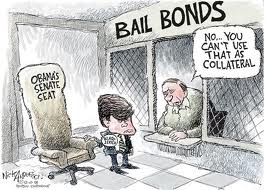Source – J Post
By – YONAH JEREMY BOB
Category – Bail Bonds In Seminole, Bail Bonds Services Sanford
A rare maximum nine justice panel of the High Court of Justice on Sunday heard arguments over the constitutionality of the Anti-Boycott Law, which it froze in December 2012. Fighting an uphill battle after the court previously seemed to preliminarily accept the claims of a range of left-wing NGOs that the law was unconstitutional, the state tried to argue for maintaining the law on the narrow grounds that it is premature to cancel a law which has not been used. One right-wing NGO argued that the law merely combated boycotts which are themselves inherently anti-free speech. The High Court froze the law in December 2012 only days after a first hearing against it, but then gave numerous extensions to the sides for addressing the legal issues in dispute. It also broadened the panel to a maximum of nine justices presided over by Supreme Court President Asher D. Grunis.against “1948 Israel.”
In other words, the court would not let the state penalize those boycotting “the occupation” of lands which Israel gained control of 1967 would.Bu at the same time, the court would let the state penalize those boycotting the entire country, including parts of Israel on the pre-1967 “Israeli side” of the green-line. The Anti-Boycott Law was passed in July 2011 and imposes sanctions on any individual or entity that calls for an economic boycott of Israel’s settlements in the West Bank or of Israel itself. The law was passed after the decision of several prominent Israeli artists not to appear or perform in settlements in the West Bank in what they characterized as a protest “against the Occupation.” The Anti-Boycott Law allows entities to win compensation in civil courts from individuals or organizations who have called for a boycott, with controversial provisions regarding the level of proof needed for actual damages. The petitioners, including Gush Shalom, Adalah – the Legal Center for Arab Minority Rights in Israel, the Association for Civil Rights in Israel (ACRI) and many others, claimed that the law essentially does not require proving actual damages have occurred at all. The law also empowers the Minister of Finance to impose financial penalties, including the removal of tax exemptions, on NGOs that call for a boycott. Gabi Lasky, one of petitioner Gush Shalom’s attorneys, said that the law was “a classic example of the tyranny of the majority” imposing its will and that she hoped the court would declare “unambiguously that even a majority in the Knesset is obligated to preserve the principle of fairness” that underlies democracy.
Responding in 2012 to the court’s freezing of the law, Adalah attorney Susan Zohar said she was pleased that the court had “recognized the many constitutional problems with the law which seriously harms the freedom of speech and to protest.” The state’s main defense in 2012, which appeared to have been insufficient, was that the law had not yet been used and that the court should not intervene until there was a concrete case. Bu Zohar also said that the law had already caused harm with a “chilling” effect on free speech from persons and organizations afraid to take any action which might even lead to a lawsuit. Zohar added that the law was “born in sin and in contradiction with the positions of the legal advisors” of the state who opposed the law publicly. At the time the law was passed, Knesset legal adviser Eyal Yinon warned the Knesset plenum that the legislation was “borderline illegal” since it could violate freedom of political expression. Even Attorney-General Yehuda Weinstein reportedly called it “borderline” defensible and admitted in defending the law that it had serious problems. Weinstein’s main argument for not striking it down yet was that the law has never been used once, as opposed to making any positive legal arguments in its favor. At the 2012 hearing on the law, Yinon partially reversed himself, formally defending the law on behalf of the Knesset. Yet, his defense was at most lukewarm. The court questioned him sharply how he could defend the law when he himself had “almost killed” the law. Yinon responded that he still disagreed with the law and thought it should have been drafted differently, but that ultimately he had to defer to the Knesset, which was not bound even by his opinion as legal adviser. According to Yinon, once the Knesset had voted, his job was to represent the Knesset. He even noted that they had considered not appearing at the hearing and asking the Knesset to hire outside counsel, but eventually decided not to do that in this case. The law had also provoked significant international criticism, including from traditional Israeli allies. If the court strikes down the law, it would not be endorsing boycotts as much as it would be saying that penalizing boycotters is a violation of Israel’s basic laws.
Source : jpost.com/National-News/Full-High-Court-hears-state-defend-Anti-Boycott-Law-341542









